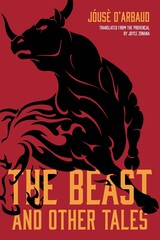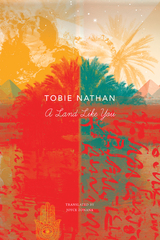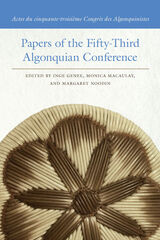
Winner of the Global Humanities Translation Prize
A classic of modern Provençal literature, Jóusè d’Arbaud’s 1926 masterpiece “The Beast of Vacarés” (also known as “The Beast of Vaccarès”) is a haunting parable. Set during the fifteenth century, the tale is narrated by a solitary bull herder—known as a gardian—who stumbles upon a starving creature that is half man, half goat. Terrified, the gardian is nonetheless drawn to the eloquent Beast, a dying demigod who laments the loss of his glorious past even as he wields power over the animals around him. Torn between pity and fear, unable to understand his experiences and afraid he will be condemned for heresy, the gardian records his encounters in a journal, hoping that one day readers will make sense of what he cannot.
Set in the vast, lonely landscape of the Camargue delta, where the Rhône meets the Mediterranean, The Beast seamlessly melds fantasy with naturalistic detail about the region’s flora and fauna. Three additional stories—“The Caraco,” “Pèire Guilhem’s Remorse,” and “The Longline”—explore the lives of twentieth-century gardians in the region. Each man succumbs to fears and social pressure, tragically losing what he most loves.

Cairo 1925, Haret al-Yahud, the old Jewish Quarter. Esther, a beautiful young woman believed to be possessed by demons, longs to give birth after seven blissful years of marriage. Her husband, blind since childhood, does not object when, in her effort to conceive, she participates in Muslim zar rituals. Zohar, the novel’s narrator, comes into the world, but because his mother’s breasts are dry, he is nursed by a Muslim peasant—also believed to be possessed—who has just given birth to a girl, Masreya. Suckled at the same breasts and united by a rabbi’s amulet, the milk-twins will be consumed by a passionate, earth-shaking love.
Part fantastical fable, part realistic history, A Land Like You draws on ethno-psychiatrist Tobie Nathan’s deep knowledge of North African folk beliefs to create a glittering tapestry in which spirit possession and religious mysticism exist side by side with sober facts about the British occupation of Egypt and the rise of the Muslim Brotherhood and the Free Officers’ Movement. Historical figures such as Gamel Abdel Nasser, Anwar Sadat, and King Farouk mingle with Nathan’s fictional characters in this engaging story.

In To Sit on the Earth, pioneering ethno-psychiatrist Tobie Nathan charts his intellectual and emotional journey, from his youthful infatuation with Freud and Wilhelm Reich to his mature adoption of anthropologist Georges Devereux’s ethnographic approach to psychoanalysis.
Expelled from Egypt as a Jew in 1956 when he was just a boy, Nathan spent his formative years on the outskirts of Paris. Caught up in situationist and Marxist politics, he enthusiastically participated in the revolutionary Events of May 1968. He then settled into a distinguished career as a writer, professor, and founding director of a free ethno-psychiatry clinic serving migrant populations in the French capital. Along the way, Nathan’s field research and practice took him to Benin, Burundi, and Brazil, where he sought out sorcerers, shamans, and other indigenous healers. As he did so, he encountered telling echoes of his ancestors’ age-old practices in Judeo-Arab Cairo.
Combining case histories and theoretical reflections with personal and familial anecdotes, while engaging with contemporary thinkers—including Sartre, Lacan, Bourdieu, and Foucault—this multi-layered, genre-defying memoir invites us to reconsider the beliefs that connect us to others and ourselves. To Sit on the Earth lays out a subtle, compelling case for the theological and cultural diversity essential to a thriving modernity.
READERS
Browse our collection.
PUBLISHERS
See BiblioVault's publisher services.
STUDENT SERVICES
Files for college accessibility offices.
UChicago Accessibility Resources
home | accessibility | search | about | contact us
BiblioVault ® 2001 - 2024
The University of Chicago Press









